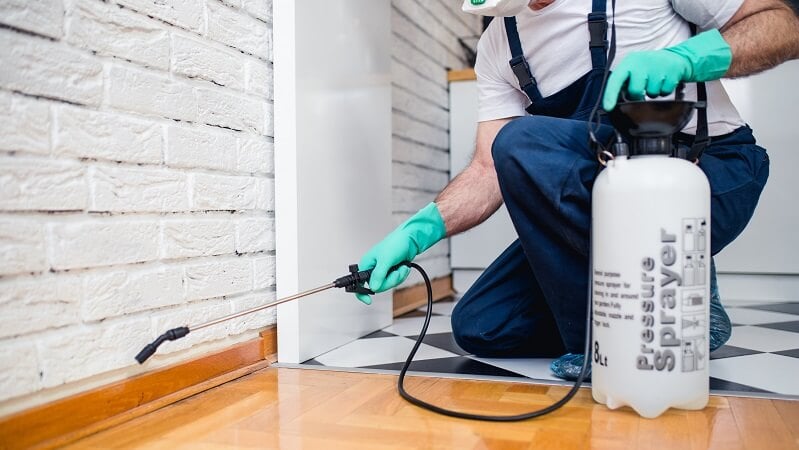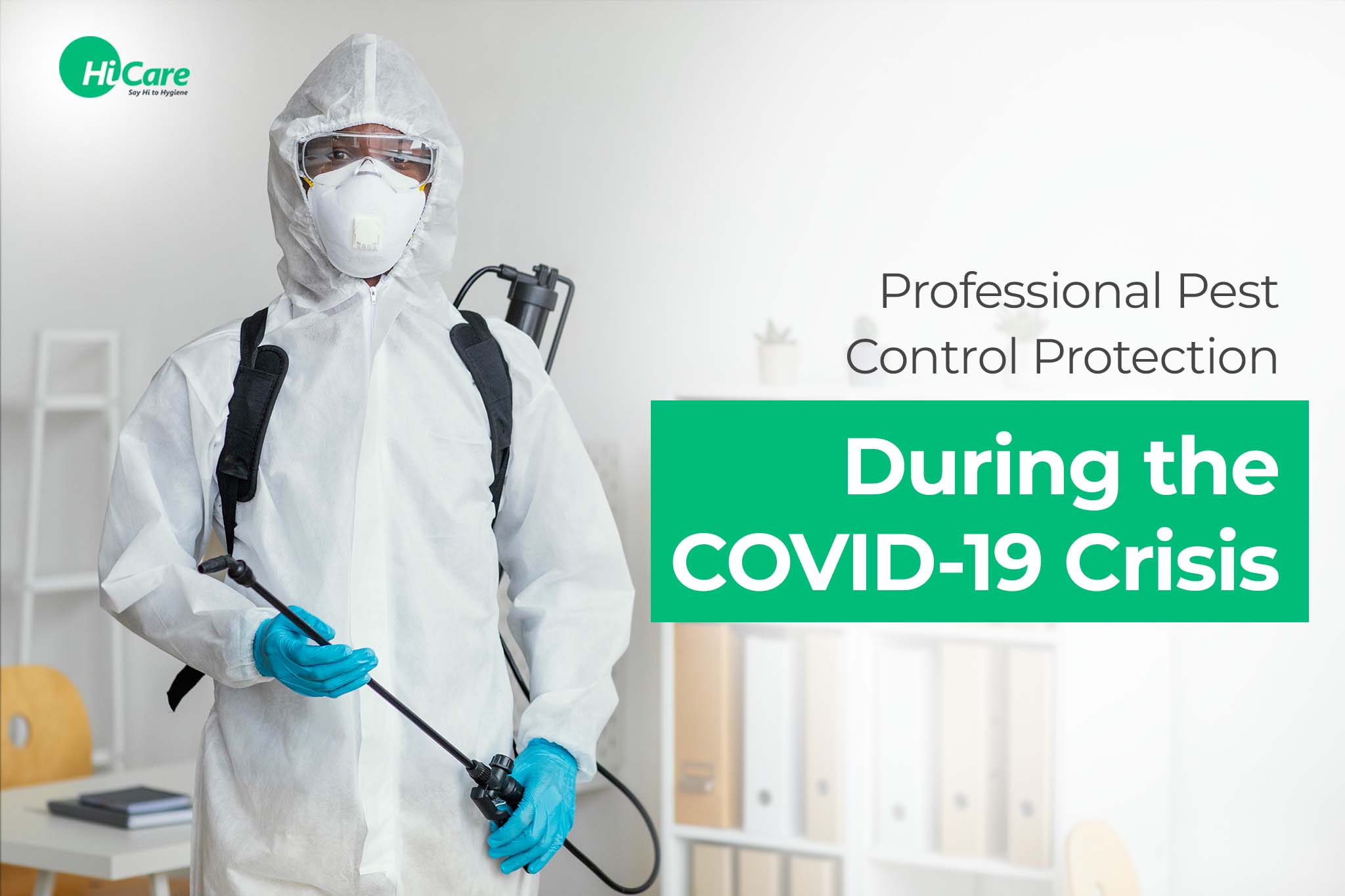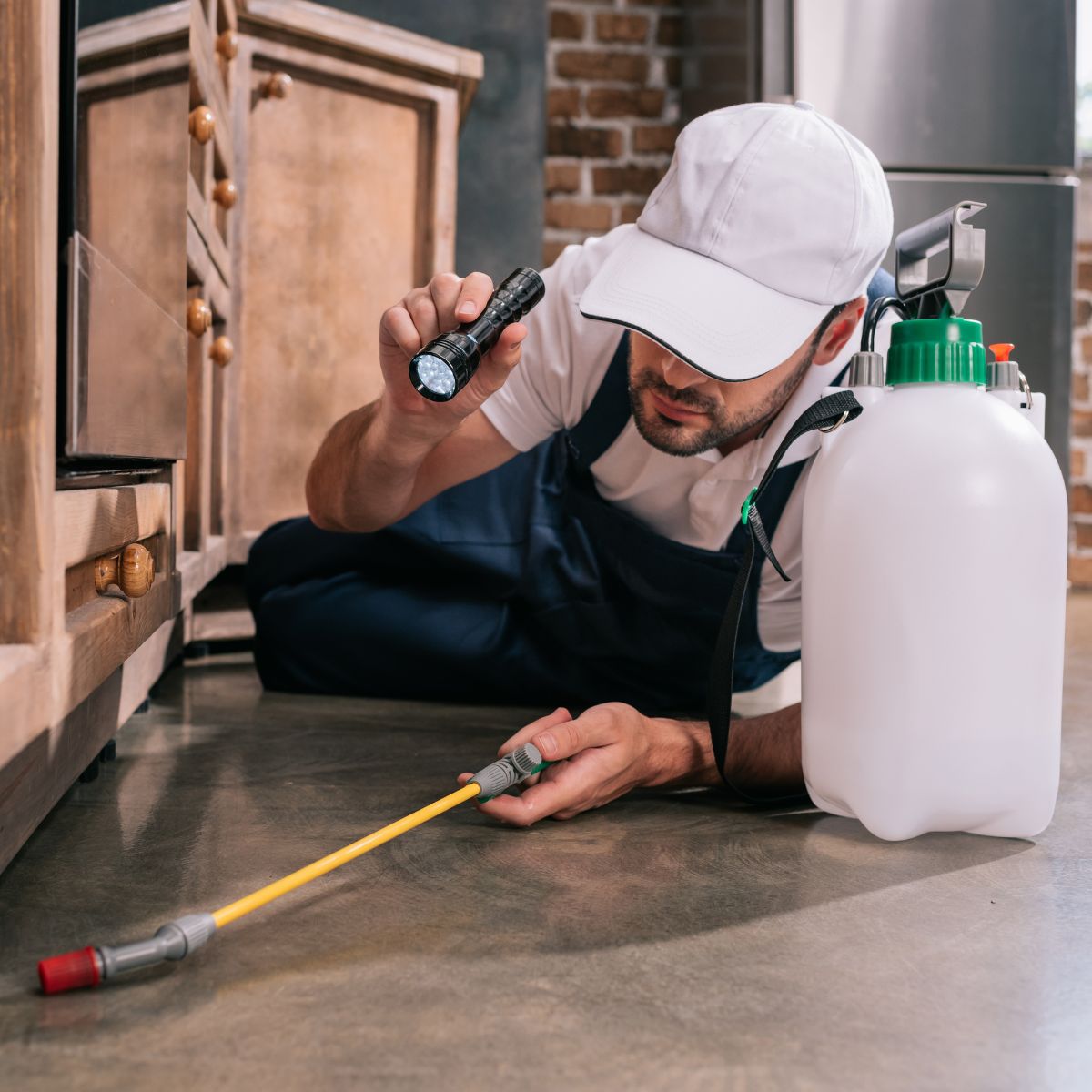Pest Control Clovis: Remove Vermin Finally
Pest Control Clovis: Remove Vermin Finally
Blog Article
Understanding the Numerous Approaches to Bug Control: A Comprehensive Guide

Natural Pest Control Methods
Utilizing environmentally friendly techniques such as friend planting and biological pest control is crucial for properly handling pests in farming settings. Friend planting involves expanding different plants in distance to discourage bugs, enhance nutrient uptake, and boost general plant health.
Organic parasite control involves presenting natural predators or microorganisms to control pest populaces. Ladybugs, as an example, feed on aphids, managing their numbers without the requirement for chemical pesticides. Another instance is using Bacillus thuringiensis (Bt), a bacterium that targets certain insect pests while being safe to humans, animals, and advantageous pests.
These environmentally friendly techniques not just decrease the dependence on synthetic chemicals yet likewise aid preserve biodiversity and soil health and wellness. By incorporating natural parasite control techniques right into farming practices, farmers can accomplish sustainable parasite management while lessening adverse influence on the atmosphere.

Chemical Pest Control Solutions
In enhancement to natural insect control techniques, the use of chemical parasite control solutions plays a considerable function in successfully taking care of pest populations in farming environments. Chemical insect control services are developed to target certain parasites that might create extensive damages to plants. These options usually contain synthetic chemicals that are designed to eradicate pests quickly and efficiently.
One of the crucial benefits of chemical bug control services is their efficiency in managing insect infestations widespread. Farmers can apply these services using various approaches such as splashing, fumigation, or seed treatment to protect their plants from unsafe pests, weeds, and diseases. Additionally, chemical parasite control options are fairly easy to use and can give fast results, helping farmers safeguard their yields and decrease economic losses.
Nonetheless, it is necessary to use chemical bug control services deliberately to minimize possible unfavorable influences on the atmosphere, non-target microorganisms, and human health and wellness. Correct application methods, adherence to safety and security guidelines, and normal monitoring are essential to make certain the responsible use chemical pest control options in farming methods.
Organic Pest Control Approaches
Organic pest control approaches leverage natural predators or virus to take care of pest populations in agricultural settings effectively. One common biological control method is the introduction of natural adversaries, such as ladybugs or parasitical wasps, to target certain parasites.
An additional organic control approach entails making use of virus like viruses, bacteria, or fungi to contaminate and eliminate insects. These microbial representatives can be splashed on plants or presented into the dirt to combat various pests without harming beneficial bugs or other wildlife. Furthermore, using scents to interfere with the breeding patterns of bugs is another reliable organic control method. By disrupting their reproduction, this technique helps to reduce bug populaces without the requirement for chemical intervention. Overall, biological parasite control approaches offer a sustainable and targeted service to pest administration in farming.
Integrated Pest Administration (IPM)
Integrated Pest Management (IPM) is an extensive visit the website approach that incorporates numerous parasite control approaches to properly handle and decrease pest populations in agricultural systems. IPM concentrates on lasting avoidance of pests via a combination of organic, social, physical, and chemical control techniques. By integrating these different techniques, IPM aims to decrease reliance on chemical pesticides, lessen ecological influence, and advertise sustainable bug administration methods.
One trick element of IPM is the use of organic controls such as natural predators, bloodsuckers, and virus to regulate pest populations. This technique uses the power of nature to maintain an equilibrium in between parasites and their natural adversaries without creating damage to the atmosphere.
Furthermore, IPM entails social methods like plant sanitation, turning, and environment manipulation to create unfavorable problems for parasites and interrupt their life process. Physical controls such as barriers, catches, and composts are also utilized to stop pest invasions.
Physical and mechanical Insect Control Methods
Utilizing non-chemical techniques, such as physical and mechanical bug control methods, is a vital element of thorough bug management techniques, developing upon the foundation of Integrated Parasite Monitoring's holistic strategy. Mechanical parasite control includes the usage of physical barriers or catches to protect against pests from accessing and damaging plants or structures. This method can consist of strategies like setting up screens on windows, using row covers in farming, or utilizing sticky catches to catch pests.
Physical bug control methods, on the other hand, concentrate on directly getting rid of insects via physical check methods. Utilizing warmth treatments to remove bed pests or vacuuming up insects like spiders or ants can be reliable means to handle More Help invasions without the use of chemicals. By incorporating these physical and mechanical parasite control strategies right into an Integrated Bug Administration plan, professionals and people can decrease dependence on chemicals while still properly minimizing and taking care of pest populations damages.
Conclusion

In enhancement to all-natural pest control techniques, the use of chemical insect control options plays a significant duty in successfully managing pest populaces in farming atmospheres.One of the key benefits of chemical insect control services is their effectiveness in controlling pest infestations on a large range.Integrated Bug Administration (IPM) is an extensive technique that combines numerous bug control approaches to properly manage and minimize pest populaces in agricultural systems.Utilizing non-chemical techniques, such as mechanical and physical parasite control strategies, is a vital element of extensive insect monitoring approaches, building upon the structure of Integrated Parasite Management's all natural approach. By incorporating these physical and mechanical insect control techniques right into an Integrated Insect Management strategy, experts and individuals can lower dependence on chemicals while still properly taking care of pest populations and minimizing damage.
Report this page